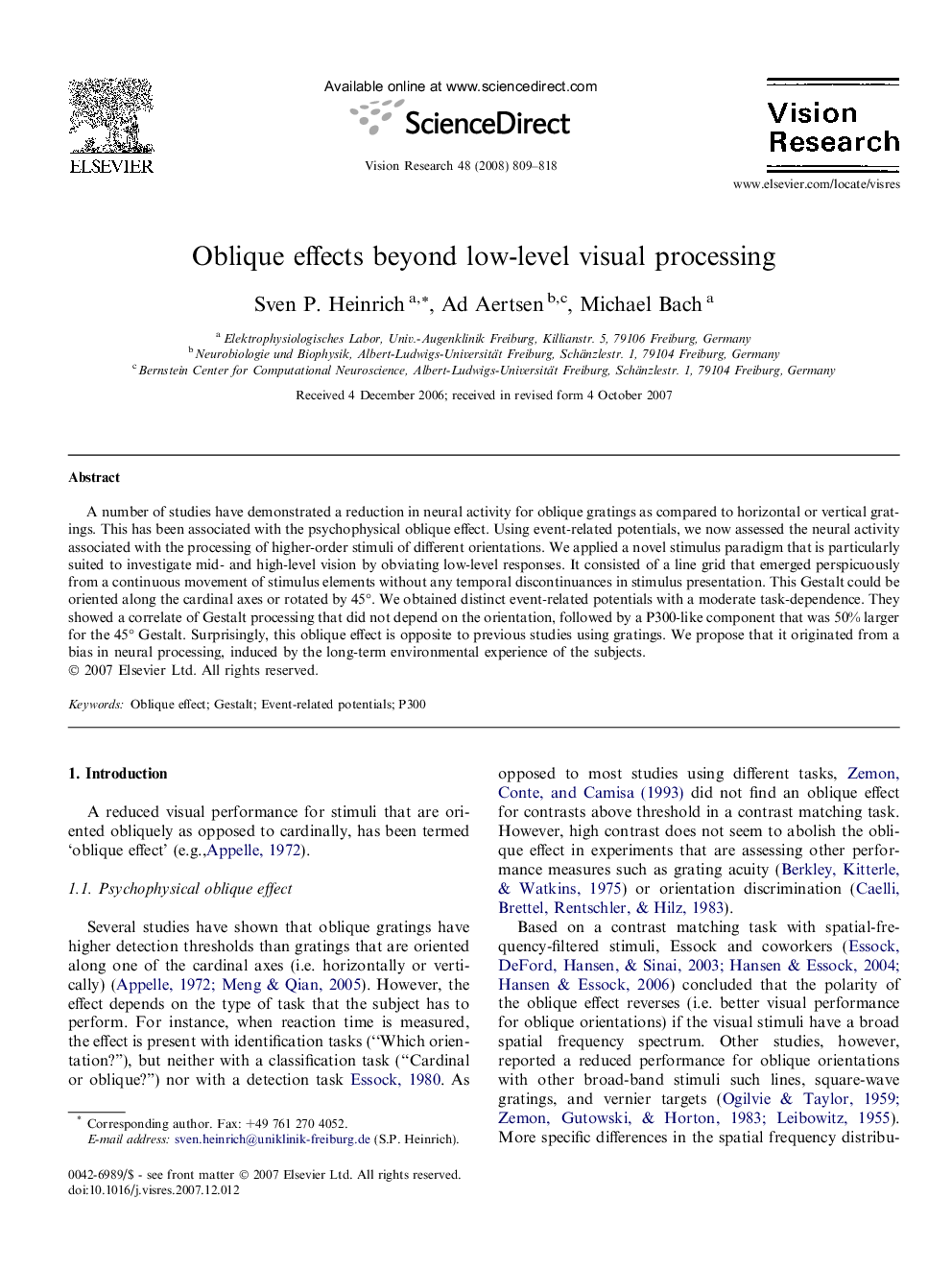| Article ID | Journal | Published Year | Pages | File Type |
|---|---|---|---|---|
| 4035059 | Vision Research | 2008 | 10 Pages |
A number of studies have demonstrated a reduction in neural activity for oblique gratings as compared to horizontal or vertical gratings. This has been associated with the psychophysical oblique effect. Using event-related potentials, we now assessed the neural activity associated with the processing of higher-order stimuli of different orientations. We applied a novel stimulus paradigm that is particularly suited to investigate mid- and high-level vision by obviating low-level responses. It consisted of a line grid that emerged perspicuously from a continuous movement of stimulus elements without any temporal discontinuances in stimulus presentation. This Gestalt could be oriented along the cardinal axes or rotated by 45°. We obtained distinct event-related potentials with a moderate task-dependence. They showed a correlate of Gestalt processing that did not depend on the orientation, followed by a P300-like component that was 50% larger for the 45° Gestalt. Surprisingly, this oblique effect is opposite to previous studies using gratings. We propose that it originated from a bias in neural processing, induced by the long-term environmental experience of the subjects.
